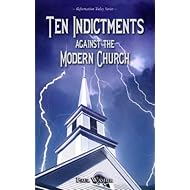We’ve all experienced it. Someone is leading in prayer, during corporate worship or a prayer meeting, and they’re meandering all over the place. Moving without evident rationale from this request to that, while interspersing “uh’s” and tap-dancing on blasphemy by repeatedly inserting God’s name as a place-keeper. You’re hearing plenty of phrases that you’re not sure are biblical and details that you’re not sure are necessary – I mean, doesn’t the Lord know what hospital she’s at, do we really have to remind Him of the address? Then come the personal items – “Please help me…” or “Lord, I confess…” – that make you feel a bit awkward, like you’re eaves-dropping on their private prayer time. Before long, you’re not praying at all, except to ask that your brother would find the “Amen” sooner than later.
Though they often get confused, there is a difference between leading people in prayer and just praying before people. The unique part of public prayer is that others have to actually be able to pray along with you. And this uniqueness explains the other two reasons why I write-out my public prayers. In part 1, I described the two spiritual realities that lead me to write my prayers – the work of the Holy Spirit in preparing the prayer and the prayers of the Bible which God gave us to actually pray.
These last two reasons why I write public prayers, owe to the unique responsibility of leading other Christians in prayer.
3. I write public prayers to help keep the prayer Christian.
“God, we just thank You for this opportunity. In Your Name, Amen.” To which God did we just pray? What’s opportunity has He’s given? And in whose name did we pray? A good rule of thumb is that if a Jew or Muslim could’ve prayed it, we probably didn’t pray like a Christian to the Triune God. By preparing and writing-out his prayer, the one leading can help the church pray like Christians.
Christians pray by the power of the Holy Spirit, in the name of the Son, addressing their Father in heaven (Eph 2:18). Take one of Paul’s prayers, for example:
For this reason I bow my knees before the Father, from whom every family in heaven and on earth is named, that according to the riches of his glory he may grant you to be strengthened with power through his Spirit in your inner being, so that Christ may dwell in your hearts through faith (Eph 3:14-17)
If someone leads in a generic “Dear God” prayer, is it biblical or Christian? And will people know the One to whom we’re praying and how it is that we can address Him at all? Will any non-Christians who’re listening-in feel appropriately excluded, understanding that since they’re outside of Christ they cannot pray to this God? By preparing to address our Triune God, I’m better able to lead others to pray sincerely Christian prayers.
As I lead the congregation in prayer, I also have to consider the biblical principle that “all things be done for edification” (1 Cor 14:26). In other words, will they understand what we’re praying and should they be comfortable praying with me? This means that I must be sure that what I lead the congregation to adore of God, what we thank Him for, what we confess, as well as what we ask of Him, is actually consistent with who He’s revealed Himself to be in the Bible. Usually that requires exploring God’s own prayer book, the Bible, beforehand so I can lead Christians in prayers they can pray with a good conscience.
This includes the general topics of our requests, as well. In our congregation, we try focus our intercessions on members of our congregation (1 Thess. 5:17), other local churches (Eph 6:18), governmental authorities (I Tim. 2:1-2), missionaries (Col. 4:3-4), persecuted Christians (Heb. 13:3), along with people-groups unreached by the Gospel (Luke 24:46-47).
In this vein, I try to keep in mind that everything that’s done in public worship, even what I pray, is instructive. Jon Payne has remarked, “through hearing the pastoral prayer Lord’s Day after Lord’s Day, Christians are instructed how to pray. Indeed, the pastoral prayer fosters similar prayers among the congregation” (In the Splendor of Holiness). I need to ask whether I’m praying something that should be repeated in the family worship or private devotions of our members? By preparing a prayer with an open Bible, I feel freer to lead others and even to instruct them how they should pray. (On a personal note, I’ve found that the more I prepare to pray, the less I need to prepare. Studying the Bible to write a prayer for others has taught me how to pray more than any other single exercise ever has).
Finally, preparing to pray helps keep the prayer from turning into a public “quiet time.” To be specific, public prayers shouldn’t contain personal pronouns (“I” or “me”) because we’re leading people in prayer, not praying in front of them. This principle is easier to violate when you’re winging it, than when you’ve prepared to lead others in prayer.
4. I write public prayers to help keep Christians praying.
When a prayer has been prepared, it tends to be more focused, clear, easier to follow, not to mention appropriately brief. If the Lord’s Prayer teaches us anything, it’s that brevity in prayer can be a virtue (Matt 6:7-13; cf. Eccl 5:2). And I’d guess that all Christians can attest to finding it difficult to follow meandering and unnecessarily lengthy prayers. In other words, preparing to pray simply helps other Christians stay focused in prayer. Again, Jon Payne has offered wise counsel on this point:
… the pastoral prayer should be prepared in advance. It should be an element in the worship service that God’s people are looking forward to, not dreading! To be sure, some, due to spiritual coldness, will be averse to the pastoral prayer no matter how it’s done; nevertheless, a rambling, unprepared minister should not be the cause for that aversion.
It’s refreshing and invigorating to be lead in a clear and biblical prayer. In equal measure, it’s quite discouraging and disheartening when prayers are overly-long and hard to follow. Writing-out a prayer is the easiest way to accomplish the former and avoid the latter.
Conclusion
I wouldn’t pretend that these posts (see part 1) cover all the reasons why public prayers should be written-out – nor answer every objection! But these four reasons are why I typically lead in prayer with a piece of paper in-hand. It’s important not to forget what constitutes a sincere prayer. Praying something you wrote beforehand is no less sincere than “making melody to the Lord with your heart” (Eph 5:19) by singing hymns from a hymnal written (often long) beforehand. What makes a prayer sincere is whether it’s prayed in faith (e.g., Jas 1:6), not whether it’s spontaneous.


 I’ve recently preached a mini-series on holiness for our congregation (links to the audio can be found under
I’ve recently preached a mini-series on holiness for our congregation (links to the audio can be found under 

 John Smyth, one of, if not the original Baptist, was so concerned with the spirituality of corporate worship, that he actually argued that a translation of the Bible should be prohibited. He reasoned that since only the original Hebrew and Greek were inspired and translations were the work of men, obviously subject to imperfections, they would corrupt the purity of Christian worship. In short, “man-made” Scripture should be excluded from the “spiritual” act of worship (
John Smyth, one of, if not the original Baptist, was so concerned with the spirituality of corporate worship, that he actually argued that a translation of the Bible should be prohibited. He reasoned that since only the original Hebrew and Greek were inspired and translations were the work of men, obviously subject to imperfections, they would corrupt the purity of Christian worship. In short, “man-made” Scripture should be excluded from the “spiritual” act of worship ( I think we can understand the folly of equating spontaneity with spirituality if we just think about what actually happens to us in spontaneous moments. What do we usually do or say when we’re put on the spot? Typically, whatever comes easy. In those moments, we rely on what we already know or what we have memorized. Truth be told, it is in spontaneous moments, especially before others, in which I’m most tempted to offer rote and meaningless prayers, a knee-jerk recitation of a familiar prayer. In unplanned moments, I’m captive to whatever I already know and to pray prayers that D.A. Carson has described as “largely formulaic, liberally larded with cliches that remind us, uncomfortably, of the hypocrites Jesus excoriated” (
I think we can understand the folly of equating spontaneity with spirituality if we just think about what actually happens to us in spontaneous moments. What do we usually do or say when we’re put on the spot? Typically, whatever comes easy. In those moments, we rely on what we already know or what we have memorized. Truth be told, it is in spontaneous moments, especially before others, in which I’m most tempted to offer rote and meaningless prayers, a knee-jerk recitation of a familiar prayer. In unplanned moments, I’m captive to whatever I already know and to pray prayers that D.A. Carson has described as “largely formulaic, liberally larded with cliches that remind us, uncomfortably, of the hypocrites Jesus excoriated” ( When you read John Owen, Sinclair Ferguson has said, be ready for the knife. That is certainly true with
When you read John Owen, Sinclair Ferguson has said, be ready for the knife. That is certainly true with  identifies some concerns he has regarding younger Christians who’ve rediscovered the biblical doctrines of the Reformation – each of them involve a “disconnect” (my word) between those doctrines and their necessary application in faith and practice.
identifies some concerns he has regarding younger Christians who’ve rediscovered the biblical doctrines of the Reformation – each of them involve a “disconnect” (my word) between those doctrines and their necessary application in faith and practice.